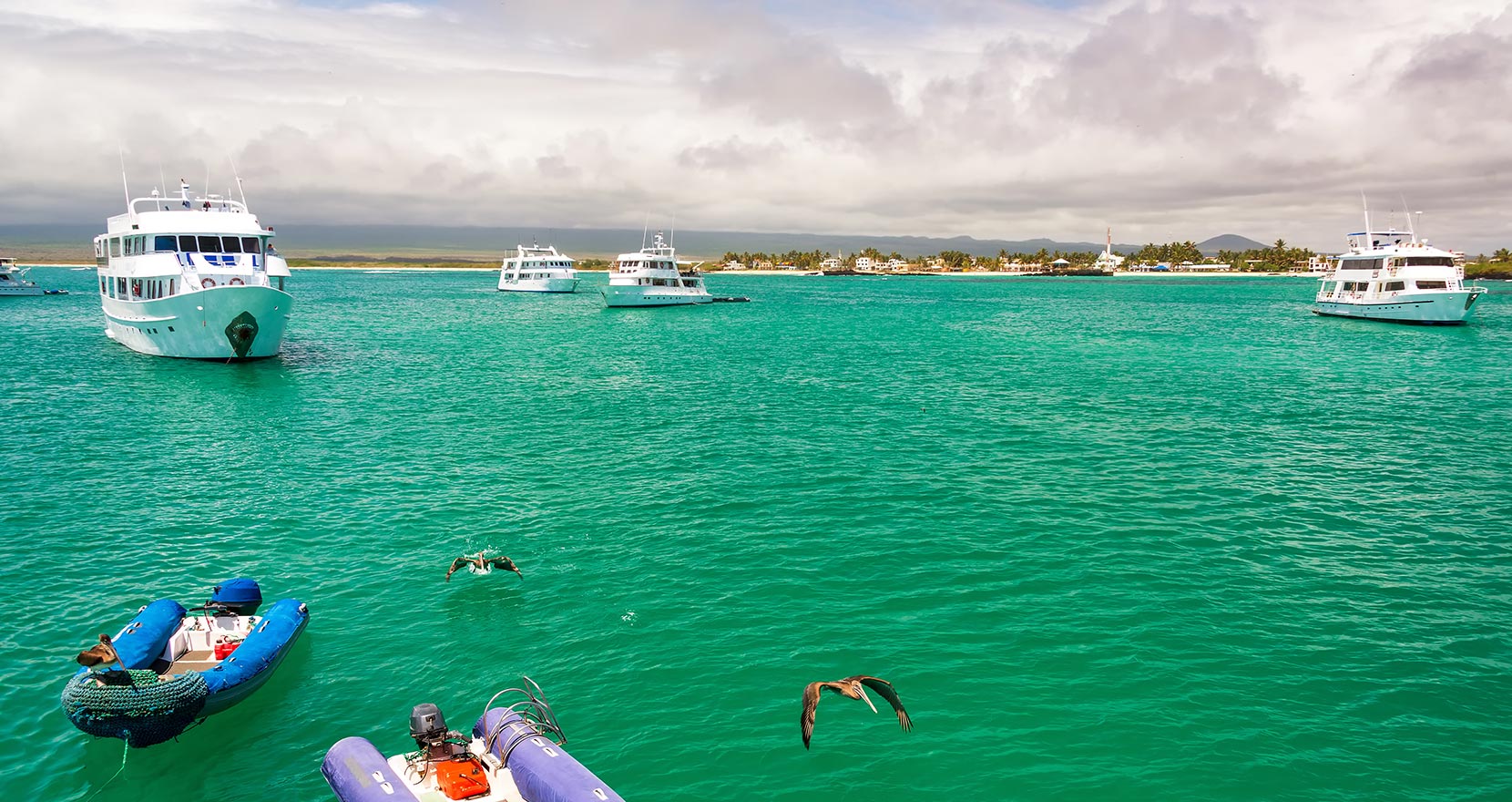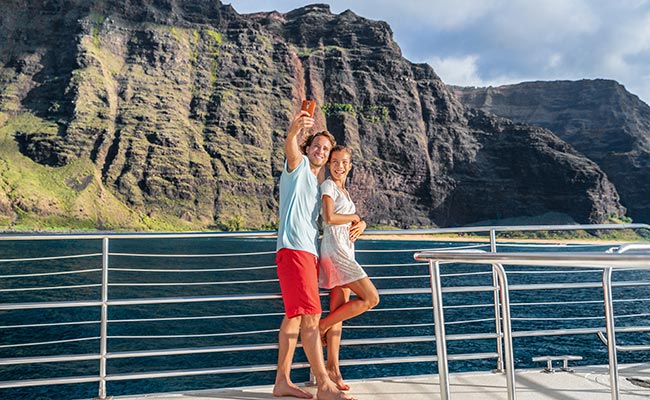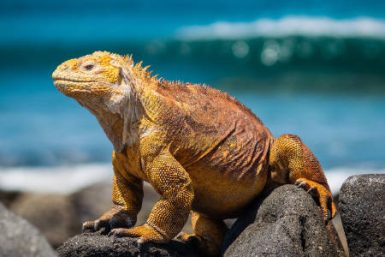- Talk with an expert insider!
- USA & Canada: 1-773-280-9571
- Ecuador: +593-987-004-404
- [email protected]

Galapagos Islands Traditions: Crossing the Equator

Quito Altitude Sickness and Treatment
October 20, 2021
Travel to the Galapagos Islands in Summer
November 1, 2022Ecuador has an entire range of traditions that might seem strange to visitors from overseas. There are summer solstice traditions, and bizarre New Year’s Eve celebrations. But perhaps one of the most unexpected of them all is a Galapagos Islands tradition which is observed by many crews when crossing the equator for the first time. The celebration of crossing the equator can happen whether the vessel is crossing from north to south, or from south to north – this matters little. The important part is celebrating the voyage across the equatorial line for the first time, for those on board.
Let’s look at what might happen on your Galapagos cruise when you cross the Equator and understand a little of the history of the celebration.
History of the Tradition
No one really knows for sure how this tradition started. Perhaps the most widely held belief is that it was put in place by the British navy, several centuries ago. It was adopted by others crossing the Equator such as pirates and whalers, and it has since been taken up by sailors from many countries worldwide. It was certainly in place by the time that Charles Darwin passed over the Equator in The Beagle as a young man, because he wrote about his experience in his diaries.
The ceremony has evolved over time and the range of characters that takes part in it has changed, but the basics of the concept remain the same. In the past the event would have been held over several hours, but you will likely find that the event on your boat is relatively short in comparison.
It should be noted that the tradition of crossing the Equator is not by any means exclusive to those on Galapagos cruises. It is also still practiced by numerous other types of sailors, such as those on other cruise liners, commercial vessels, and the navy.

The Celebration of Crossing the Equator
Different crew will celebrate crossing the Equator in different ways – the specifics of the ceremony will vary depending on the crew and the cast of characters they bring into the proceedings. However, there are some main themes to the event.
One key element is that those that have not crossed the Equator are known as “Pollywogs.” These folks need to become “Shellbacks” by passing over the Equatorial line. Shellbacks are also known as sons of Neptune. Once the Equator has been crossed, all Pollywogs are invited to see King Neptune, where they become sons of Neptune for achieving the crossing. The crew will typically dress up, as Neptune, among other costumes – sometimes there will be a Queen Amphitrite, wife of Neptune as well. There is likely to be much merriment and humor linked with this celebration.
The idea behind the tradition is that the king of the oceans, Neptune himself must be kept happy. The celebration is designed to demonstrate respect for King Neptune, and in return, the King will ensure that those crossing the seas will be kept safe and will experience good luck.
The celebration has changed somewhat since the time of Charles Darwin, and these days is more palatable. Previously, the initiation involved with crossing the line was somewhat more unpleasant. In the past, Pollywogs, or “griffins” as they were known in those times might find themselves locked in on the lower deck before being subjected to rituals such as being smothered over the face with paint and being titled into water head over heels. Darwin describes these sorts of episodes vividly in his diaries.
Nowadays, Pollywogs may have to undertake some small initiation tests, and may experience some mild embarrassment as a result of taking part in the proceedings. No harm is meant, and it is best to go along with the experience and take it in the friendly spirit in which it is meant. In some cases, those that take part will earn themselves an Equator Crossing Certificate to mark their participation in this ritual.

Organizing Your Trip
Get in touch with us if you have an interest in experiencing the Galapagos Islands celebration for crossing the Equator. We can get in contact with cruises that are known to undertake this ceremony and make sure you have the best possible chance of enjoying it.
As well as being experts in Galapagos travel, we also have a wealth of expertise in travel on the Ecuadorian mainland. If experiencing traditions is something you’d like to do on your trip, we can help you customize your trip so that you can see other quirky celebrations being enacted in various parts of the country. This will depend on the time of year that you visit of course.





